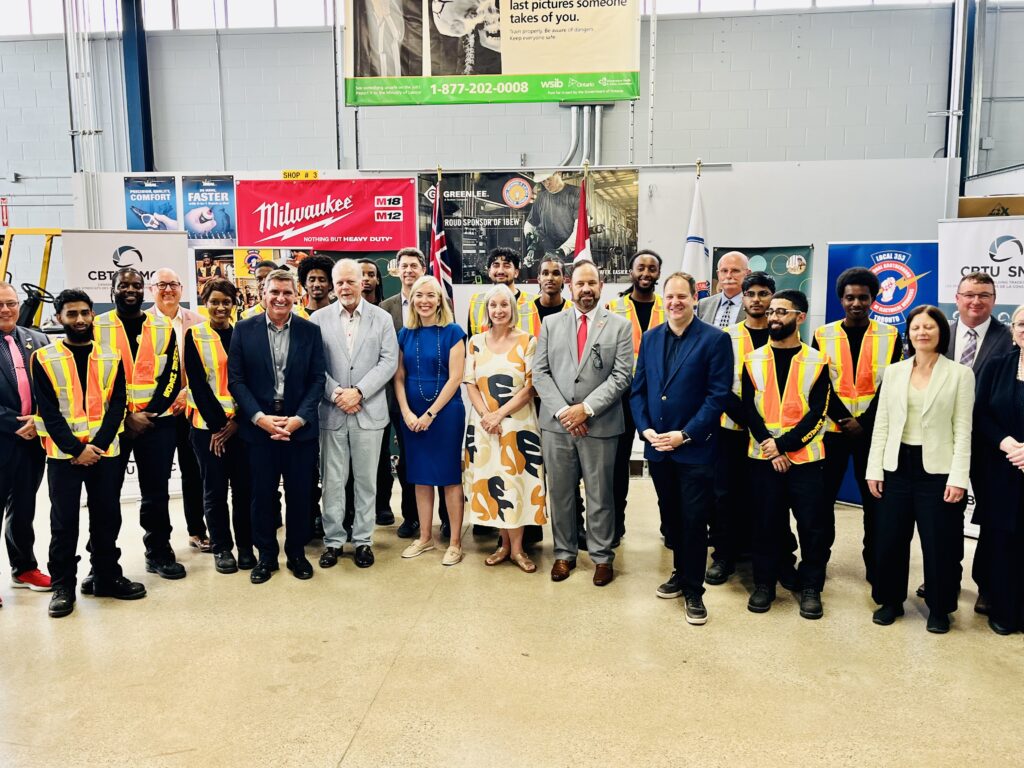Meeting the Demand: A Collaborative Response to Canada’s Skilled Trades Shortage
Last month, the Future Skills Centre (FSC) joined Canada’s Building Trades Unions (CBTU) and SkillPlan to co-host a site visit at IBEW Local 353 in Mississauga. We were honoured to welcome the Honourable Patty Hajdu, Minister of Jobs and Families and FedNor, along with senior leaders from Employment and Social Development Canada (ESDC), including Assistant Deputy Minister for Skills and Employment, Colette Kaminsky, Parliamentary Secretary Leslie Church, and Secretary of State for Labour, John Zerucelli.
During the visit, attendees had the opportunity to connect directly with apprentices from the Hammer Heads program, gaining firsthand insight into how targeted training initiatives are transforming lives and opening pathways to rewarding careers. The event also fostered meaningful cross-sector collaboration, bringing together leaders from government, labour, training, and research to share strategies for building a more inclusive and future-ready skilled trades sector.

With major infrastructure and housing projects on the horizon, the demand for skilled tradespeople is accelerating. Canada is expected to need an estimated 266,000 additional trades workers in the coming years. In response, FSC is supporting a pilot project led by Skillplan in collaboration with CBTU and their provincial partners,Social Research and Demonstration Corp. and delivery partner Magnet to expand and enhance recruitment and training systems designed to modernize how people discover, prepare for, and connect with careers in the unionized construction sector.
At the heart of the roundtable discussions was a shared commitment to equity and inclusion. Leaders explored how targeted recruitment and training strategies are expanding access to skilled trades careers for historically underrepresented groups, including women, Indigenous Peoples, newcomers, racialized communities, and youth.
These efforts are already producing tangible results. Between April and October 2024, over 500 partner organizations are actively engaged in outreach and learner support. The project has received strong backing from all provincial building trades councils across Canada, highlighting a national commitment to building a more inclusive, resilient, and responsive workforce.
FSC remains deeply committed to this mission. To date, we’ve supported over 390 pilot and research projects across the country, with 74% focused on underserved populations. Our State of Skills report on the skilled trades highlights emerging insights from ongoing research and pilot projects, sharing lessons on what’s working across the skills ecosystem.
As Canada faces urgent workforce and housing demands, coordinated national approaches like this are essential. Together, we’re building a skilled trades sector that’s modern, inclusive, and ready to meet the challenges ahead.


